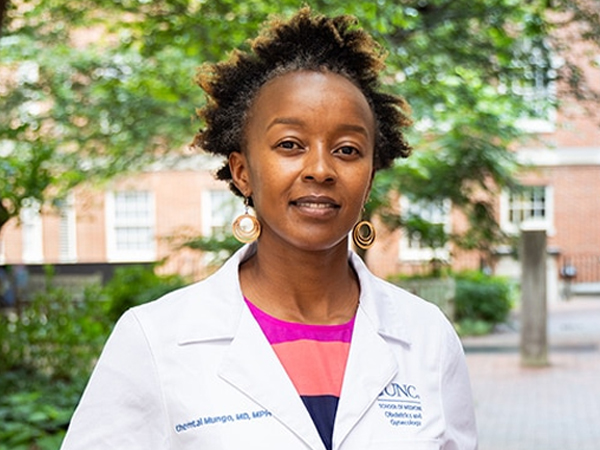Sections
As an organization whose core values include diversity, equity, and inclusion, the AACR is deeply committed to achieving the bold vision of cancer health equity for all. The AACR leads the cancer research community in the pursuit of this vision in three ways: by eliminating cancer health disparities; by ensuring that everyone can participate in and benefit from the cancer research enterprise; and by advocating for policies and regulations that ensure a more just and equitable world.
Through a wide range of programs and initiatives, the AACR fosters cancer health equity and advances its mission to prevent and cure all cancers—for all patients.
AACR programs and initiatives help to identify, quantify, and understand the causes of cancer health disparities, which is critical to the development and implementation of strategies to eliminate them.

Through education, training, and research funding—and with leadership support from its Minorities in Cancer Research Council—the AACR works to ensure that the cancer health care workforce reflects the community it serves. In addition, AACR programs and initiatives examine the structural and systemic biases in the cancer research enterprise and work to eliminate them.
Held in November and directed by Roy S. Herbst, MD, PhD, Priscilla Pemu, MD, Yu Shyr, PhD, and program namesake Robert A. Winn, MD, FAACR, the 2023 edition of the AACR workshop educated the participants about clinical trial design and research practice by presenting the ongoing challenges in clinical research; highlighting the benefits of focusing on clinical research, specifically in underrepresented populations; and investigating the disconnect between communities and clinical trialists.
The AACR catalyzes progress toward health equity by disseminating critical information to legislators, regulators, and the cancer community; by calling for action on policies that can improve public health; and by amplifying the voices of patient advocates in its programs.
In December 2022, the FDA guidance became a law that made diversity action plans mandatory for all phase III clinical trials. To help the cancer research community respond to the new law, the AACR organized a special symposium on “Implementing Diversity Action Plans for Clinical Trials” during the AACR Annual Meeting 2023. The session, which was moderated by Dr. Fashoyin-Aje, addressed the challenges and opportunities facing drug developers who develop and implement diversity action plans.
In addition, Ivis C. Febus-Sampayo moderated a special session on “Advocacy at the Bench.” The session featured a panel discussion that highlighted patient advocacy efforts that are addressing barriers to diversity, equity, and inclusion and ensuring equitable opportunities for all patients with cancer.